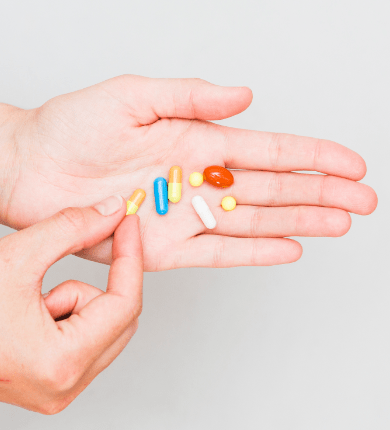WHAT'S CAUSING YOUR ACNE?
The exact cause of acne is not known. Hormonal changes are a trigger. Hormones play a huge role in the development and progression of acne. During puberty, everyone – boys and girls – starts to produce masculinizing hormones called androgens. Androgen hormones cause oil-producing glands to enlarge, stimulating oil production. When there’s more oil and less shedding of dead skin cells, pores become clogged, and there you have it – acne. That’s why estimated 80 to 85 percent of teens get acne.
Stress can trigger or worsen your acne because it causes the body to release cortisol and androgens from your adrenal glands, increasing oil production.
Nutritional factors may also prompt the formation of acne.
Environment – Outside factors like pollution, heat and humidity lead to increased oil production that in turns may clog pores and flare acne.
Genetics
Common Culprits
Contributing to comedone (black head, white head) formation
Shampoos, hair conditioners, pomades, hair gels and hairspray may be blocking pores, causing acne on the forehead and around the hairline.
The wrong moisturizers or makeup
Greasy hair may migrate to the forehead and temples, triggering small breakouts along the hairline or sides of the face, along with scalp acne.
Friction from hats or athletic gear, which traps bacteria, increases sweating, and inflames the skin. Take a shower and clean your sports equipment as soon as possible, after the workout.
QUICK TIPS
Always look for “noncomedogenic” or “non-pore clogging” designations on all product labels.
Sun & Acne
Small amounts of sun exposure may seem to help your acne, at first, because the blue band of visible light helps to kill acne causing bacteria P. acnes and limit skin inflammation. However, prolonged sun exposure increases the shedding of dead cells on the surface of your skin, plugging your pores, which may eventually produce blackheads, whiteheads and small pimples.
Heavy, comedogenic sunblocks are occlusive and can increase the temperature inside your hair follicles, contributing to acne.
Avoidance of prolonged sun exposure, along with daily use of a lightweight, noncomedogenic sunscreen formulated for acne-prone skin, is best for protecting your skin and minimizing breakouts.


Diet
While diet is NOT the primary cause of acne; please consider the following as they may play a contributing role to acne:
- Carbohydrates found in sugary, starchy, or processed foods with high glycemic index like white pasta, rice, bread and sweets may contribute to acne.
- Avoid hormones and antibiotics in dairy and meats. Look for “organic” or “hormone-free.”
- Follow a low-glycaemic, low-protein and low-dairy diet. Opt for eating low fat protein (chicken, fish, lean beef), whole grains like quinoa, and leafy vegetables to avoid spiking your blood sugar levels. Avoid protein or amino acid supplements, particularly if they contain leucine.
- Eat plenty of fresh fruit and vegetables fish, olive oil, garlic.
- Avoid high iodine levels by watching the consumption of lots of seafood, seaweed, or iodized salt.
Medications
If your doctor has prescribed some of the following medications, be advised that a possible, yet uncommon side effect is acne.
- Lithium
- Androgenic steroids, DHEA, progesterone-dominant forms of birth control
- Medications containing bromides or iodides

A WORD ABOUT MILK...
Cow’s milk contains androgens, estrogen, progesterone and glucocorticoids, which provoke keratinisation and sebum production. Milk also contains amino acids (eg arginine, leucine, and phenylalanine) that produce insulin when combined with carbohydrates.Insulin induces male hormones (androgens), glucocorticoids and growth factors. These provoke scaling of the hair follicle and sebum production. An increase in sebum production and keratinisation is a factor in the appearance of acne.